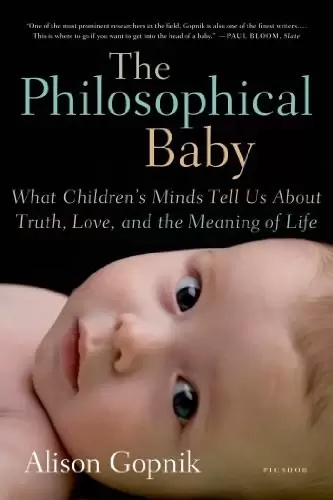
作者:AlisonGopnik
出版社:Picador
副标题:WhatChildren'sMindsTellUsAboutTruth,Love,andtheMeaningofLife
出版年:2010-7-6
页数:304
定价:USD18.00
装帧:Paperback
ISBN:9780312429843
内容简介
······
For most of us, having a baby is the most profound, intense, and fascinating experience of our lives. Now scientists and philosophers are starting to appreciate babies, too. The last decade has witnessed a revolution in our understanding of infants and young children. Scientists used to believe that babies were irrational, and that their thinking and experience were limited. Recently, they have discovered that babies learn more, create more, care more, and experience more than we could ever have imagined. And there is good reason to believe that babies are actually smarter, more thoughtful, and even more conscious than adults. This new science holds answers to some of the deepest and oldest questions about what it means to be human. A new baby's captivated gaze at her mother's face lays the foundations for love and morality. A toddler's unstoppable explorations of his playpen hold the key to scientific discovery. A three-year-old's wild make-believe explains how we can imagine the future, write novels, and invent new technologies. Alison Gopnik – a leading psychologist and philosopher, as well as a mother – explains the groundbreaking new psychological, neuroscientific, and philosophical developments in our understanding of very young children, transforming our understanding of how babies see the world, and in turn promoting a deeper appreciation for the role of parents. Alison Gopnik, a professor of psychology at the University of California at Berkeley, is the author of "The Scientist in the Crib." For most of us, having a baby is the most profound, intense, and fascinating experience of our lives. Now scientists and philosophers are starting to appreciate babies, too. The last decade has witnessed a revolution in our understanding of infants and young children. Scientists used to believe that babies were irrational, and that their thinking and experience were limited. Recently, they have discovered that babies learn more, create more, care more, and experience more than we could ever have imagined. And there is good reason to believe that babies are actually smarter, more thoughtful, and even more conscious than adults. This new science holds answers to some of the deepest and oldest questions about what it means to be human. A new baby's captivated gaze at her mother's face lays the foundations for love and morality. A toddler's unstoppable explorations of his playpen hold the key to scientific discovery. A three-year-old's wild make-believe explains how we can imagine the future, write novels, and invent new technologies. Alison Gopnik–a leading psychologist and philosopher, as well as a mother–explains the groundbreaking new psychological, neuroscientific, and philosophical developments in our understanding of very young children, transforming our understanding of how babies see the world, and in turn promoting a deeper appreciation for the role of parents. " Gopnik's] account of what the science of recent decades has had to say about infants' minds tells a fascinating story of how we become the grown-ups that we are." –"The New York Times "
作者简介
······
艾莉森•高普尼克(Alison Gopnik)
●国际公认的儿童学习与发展研究泰斗级专家,首位从儿童意识角度深刻剖析哲学问题的心理学家。对于孩子的心智、大脑和学习方式,没人比她更了解。
●牛津大学心理学博士,加州大学伯克利分校心理学系教授及哲学系客座教授,推翻了经典的“白板说”,还是心理理论创始人之一。
●TED演讲点击量过300万次,写有大量科学文章和评论,见于《纽约时报》《卫报》《科学人》等各大媒体。
评论 ······
上一本书关于致幻剂,这一本关于儿童心理,而我想的都是自我意识的问题。小的时候总是想:为什么我是我?但同时又觉得奇怪:我究竟要问什么?是问我为什么是这样的吗?我为什么存在吗?好像都不对。听这两本书的时候突然明白了,我的问题,其实问的是自我意识——为什么我的自我意识有边界,而这个边界是我的身体,为什么自我不能伸出触角越过其他人的边界?为什么这个“我”的体验是这样绝对而独立。现在意识到这并不是自我的唯一…
上一本书关于致幻剂,这一本关于儿童心理,而我想的都是自我意识的问题。小的时候总是想:为什么我是我?但同时又觉得奇怪:我究竟要问什么?是问我为什么是这样的吗?我为什么存在吗?好像都不对。听这两本书的时候突然明白了,我的问题,其实问的是自我意识——为什么我的自我意识有边界,而这个边界是我的身体,为什么自我不能伸出触角越过其他人的边界?为什么这个“我”的体验是这样绝对而独立。现在意识到这并不是自我的唯一…
评论前必须登录!
注册